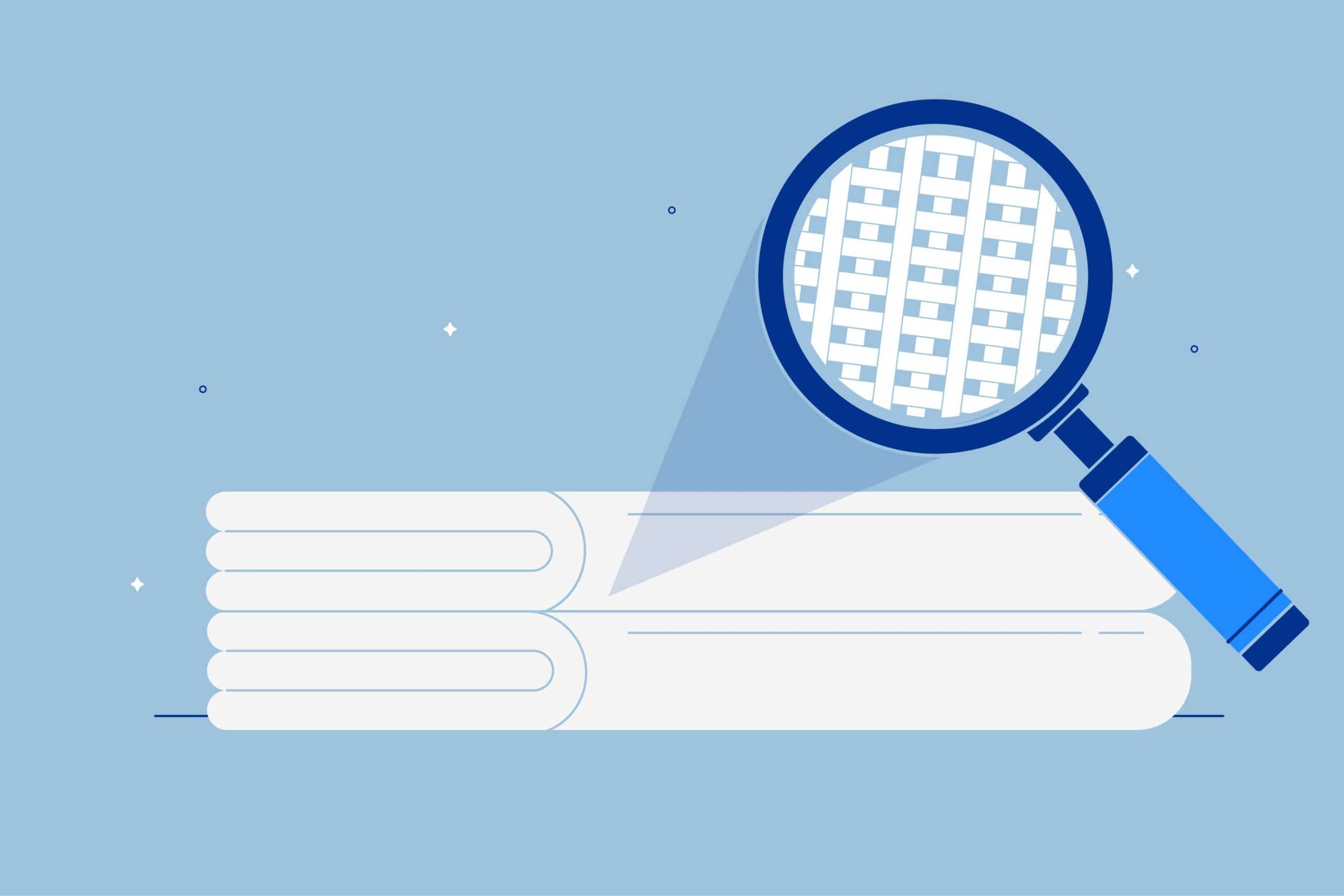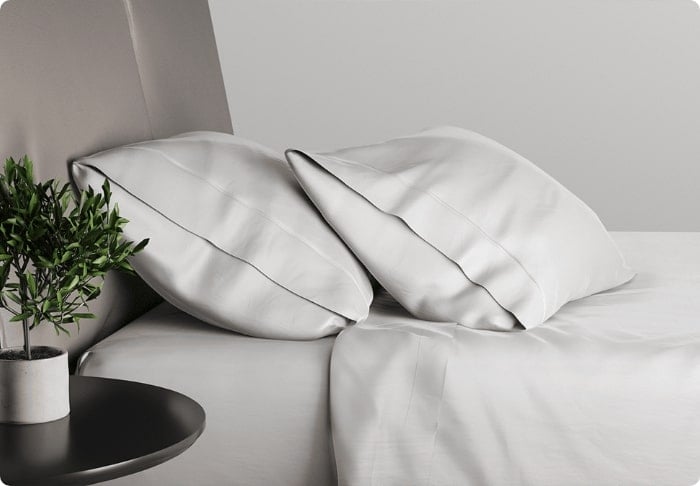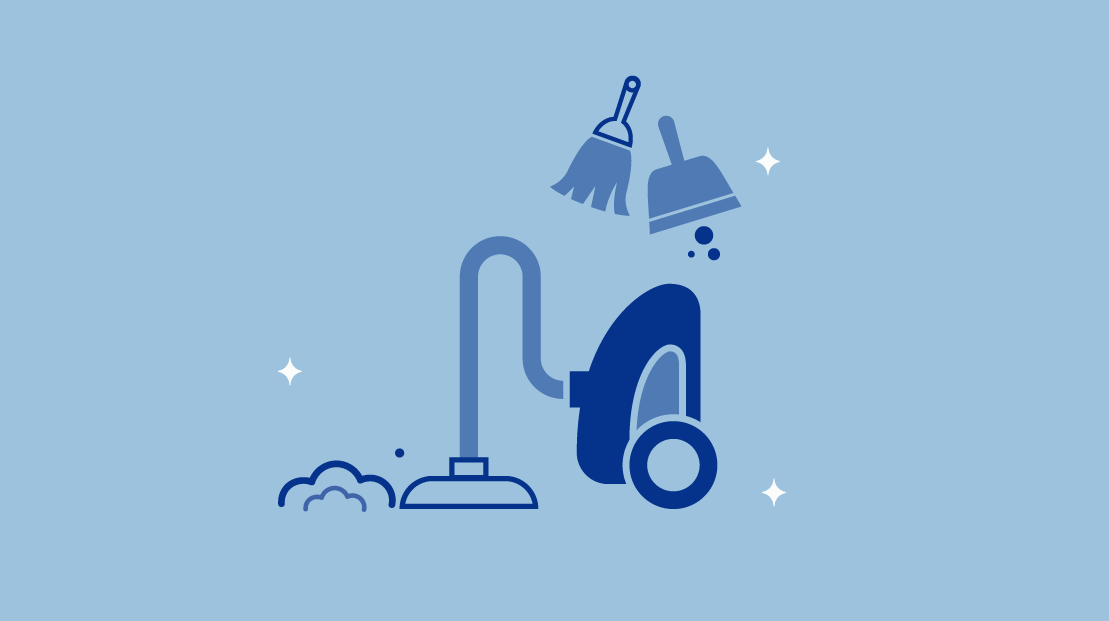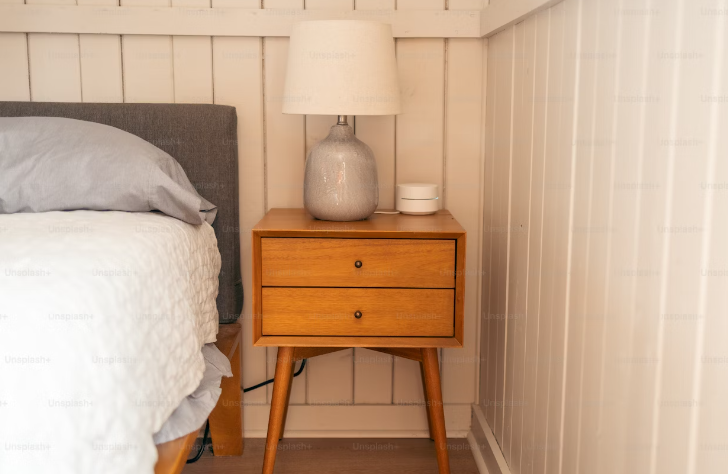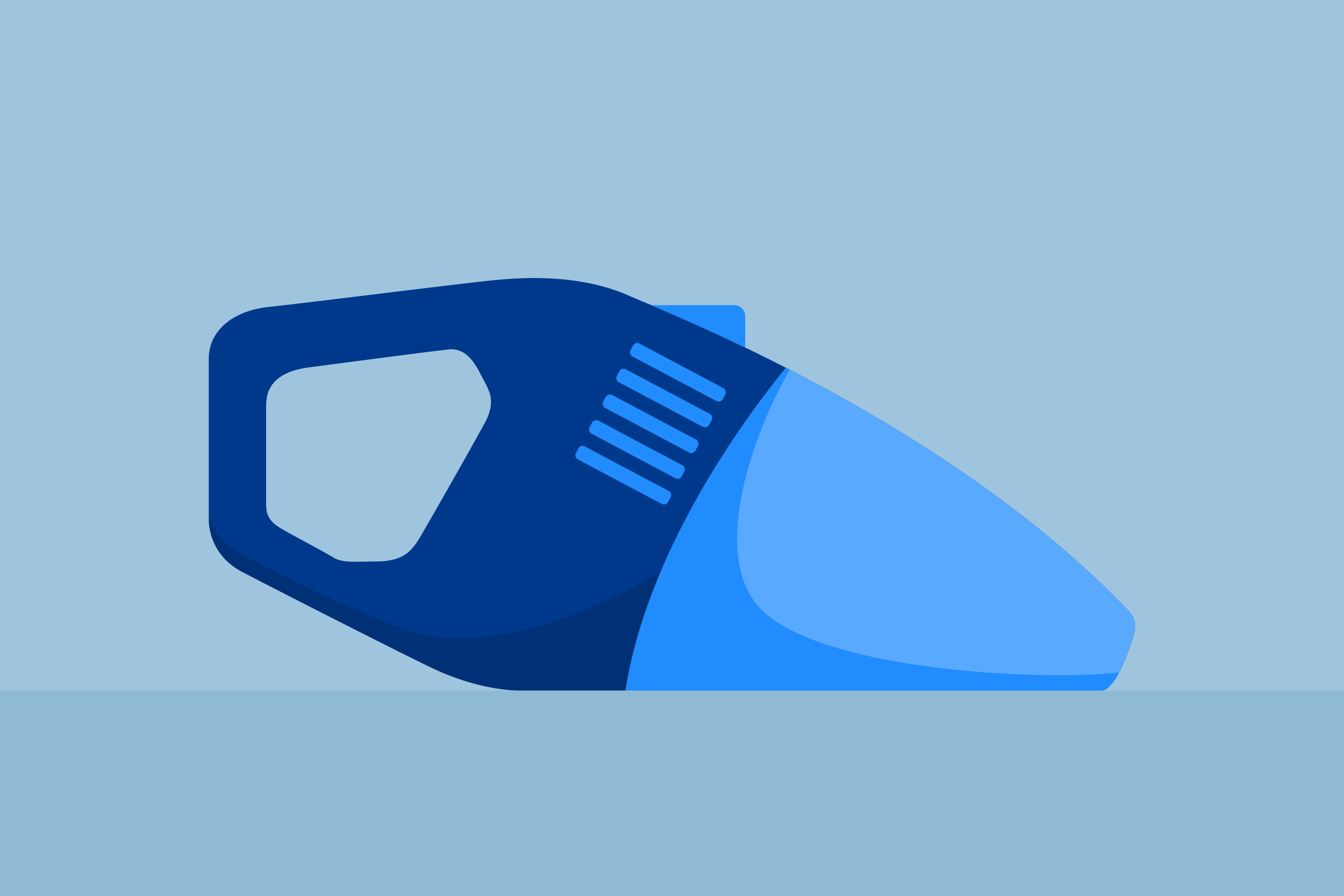Key Takeaways
- Thread Count Is Not the Sole Indicator of Quality: Thread count measures the number of yarns used per square inch of fabric and is mainly relevant for cotton sheets. However, a high thread count does not always equate to better quality. Sheets with extremely high thread counts (e.g., 1000 or more) may use multi-ply threads, which can result in rough and less durable fabrics.
- Consider Other Factors: To determine the overall quality of bed sheets, consider factors beyond thread count. These include the type of fibers used (e.g., cotton, Tencel, bamboo), the staple length of the fibers (longer staples are softer), and the weave pattern (e.g., percale for breathability, sateen for a smooth feel). High-quality sheets often feature long-staple fibers and durable weaves.
- Choose Sheets Suited to Your Preferences: The best bed sheets for you depend on your personal preferences and needs. For hot sleepers, breathable materials like bamboo, Tencel, linen, or cotton percale are excellent choices. Additionally, always wash brand-new sheets before using them to remove any odors or chemicals from the production process and to check for defects.
The bedding industry puts a lot of emphasis on thread count and its effect on sheet quality—the best thread count is seemingly synonymous with the highest thread count. A high thread count suggests sheets are comfortable and last a long time, however, this isn’t always true.
While thread count is useful to gauge quality, there are more elements to determine if sheets are worth the buy. As you shop, you will come across several types of bed sheets, each with a different weave, staple length, and thread count.
What is Thread Count?
Thread count refers to the number of yarns used per square inch of fabric. Companies add up the number of wefts (horizontal yarns) and warps (vertical yarns) to calculate thread count.
Thread count as we know it is mainly pertinent to cotton. Linen is also measured by thread count, but linen and cotton threads aren’t comparable—a 120 to 200 thread count is great for linen, but subpar for cotton. Other materials, such as silk or flannel, are measured by weight, not thread count.
Is High Thread Count Better?
A high thread count is typically associated with high-quality fabric, but this isn’t totally accurate.
Be skeptical of sheets with thread counts of 1000 or higher, especially if they’re unusually cheap. This likely means the manufacturer used two or more strands of fibers to make one thread, a tactic to double or triple thread counts. Multiple fibers wrapped into one thread is known as multi-ply threads—versus the standard single-ply thread—and results in loose and rough fabrics.
Multi-ply sheets are prone to breakage because manufacturers use low-quality fibers to squeeze in as much thread per square inch as possible. Single-ply fabrics, while they have a lower thread count than multi-ply fabrics, often have high-quality materials and last longer. The ideal thread count for soft and durable bed sheets is actually between 300 and 500.
What Makes High-Quality Sheets?
Measuring thread count isn’t your only tool when looking for high-quality sheets. Take a look at a sheet’s fibers, staple length, and weave pattern—together, these factors outweigh thread count’s impact on fabric quality. Fibers, staple length, and weave impact the feel, appearance, and durability of bed sheets.
Fiber
Sheets are available in different fibers, including cotton, polyester, bamboo, and more. The type of fiber affects features such as a bed sheet’s longevity, aesthetics, maintenance needs, and more.
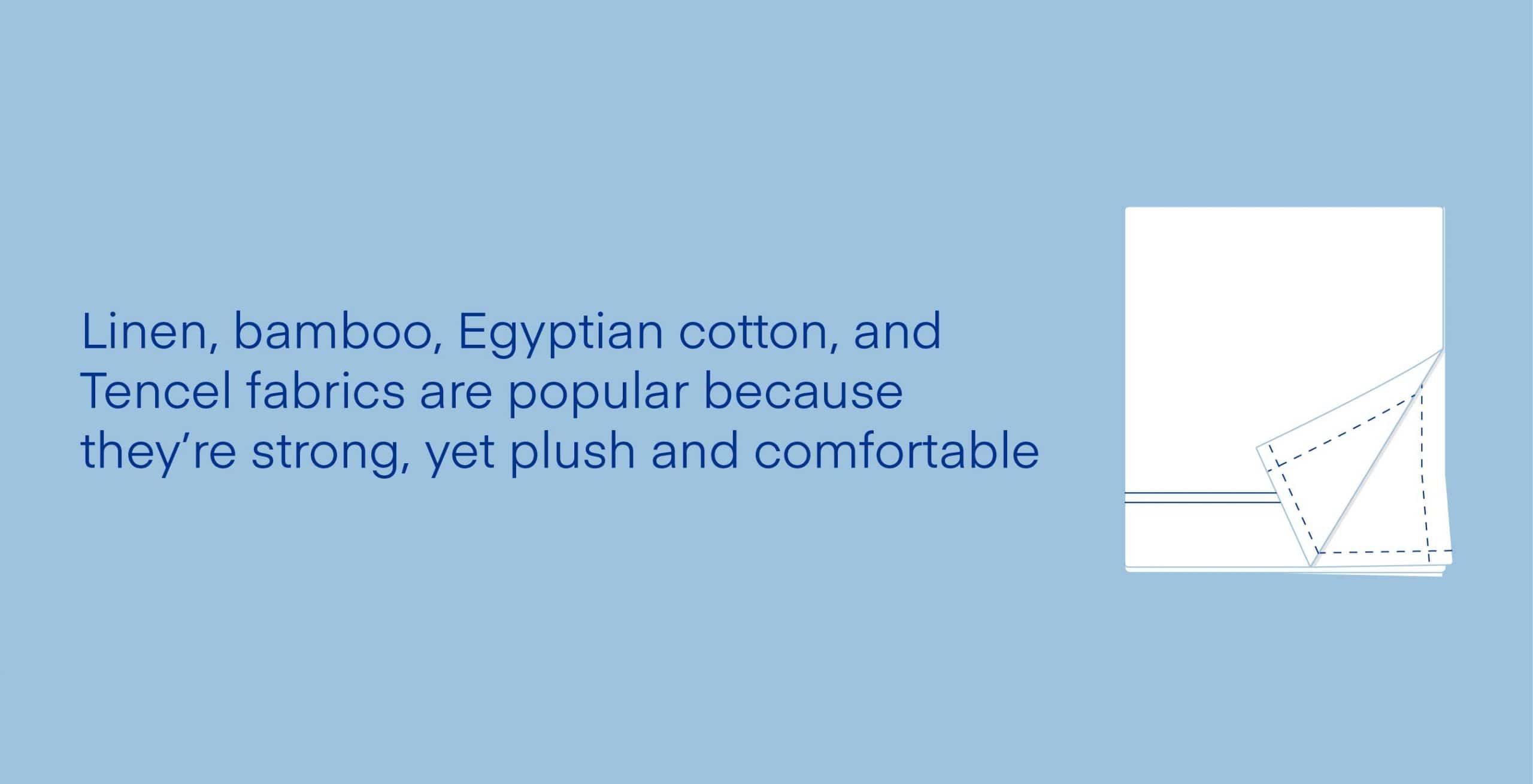
Linen, bamboo, Egyptian cotton, and Tencel fabrics are popular because they’re strong, yet plush and comfortable. Choosing a fiber can come down to personal preference, such as if you simply enjoy the feel and look of silk or satin. Also, if you tend to get cold in the evenings, you might prefer fleece or flannel sheets as opposed to Tencel or cotton.
Staple Length
Staple length refers to the length of fibers used to create a fabric such as cotton or wool. The main staple lengths are short, long, and extra-long. The longer the staple length, the softer the fabric feels. Long and extra-long staples are considered high-quality since they’re light and smooth, yet durable.
On the other hand, short-staple fabrics are often rough and thick, so they don’t make for comfortable bed sheets. However, short-staple fabric is popularly used for denim, towels, and t-shirts.
Weave
The weave is the pattern in which warp and weft yarns are interlaced. Different weaves affect a textile’s feel, look, and durability. The most common and durable weaves are percale and sateen.
A percale weave feels crisp and looks matte. Percale sheets are breathable and great for warm nights. Sateen sheets feel soft, smooth, and luxurious, though they hold more heat than percale sheets.
Consider Amerisleep Sheets
Quick Guide: A 30-Second Summary
| Best Cotton Sheets | Amerisleep Cotton Sheets |
| Best Tencel Sheets | Amerisleep Tencel Sheets |
| Best Bamboo Sheets | Amerisleep Bamboo Sheets |
Our Tencel sheets have a 310-thread count for a breathable, luxurious weave. Our bamboo sheets have a slightly lower thread count of 240 thanks to the long-staple fibers we use, providing durability without relying on excessive material.
FAQs
What is the highest thread count?
It’s possible to come across thread counts as high as 1800 or 2000, but it’s nearly guaranteed the numbers are inflated, especially if the price is low. It’s best to avoid sheets with these thread counts as they’re likely made using cheap materials.
How do I stop my sheets from pilling?
Pills are the tiny fuzzballs that collect on bed sheets and are a result of friction. They can be scratchy against your skin and unsightly to look at. Some sheets are naturally more resistant to pills, such as Egyptian cotton or linen.
However, there are ways to limit pilling on your sheets. Avoid hot temperatures when washing or drying your sheets—air dry when possible. Use a gentle wash and dry cycle and mild detergent to avoid additional wear to the fabric.
Why do my bed sheets shrink?
Some sheet types shrink just a bit after their first wash and this is normal. However, other sheets continue shrinking until they’re barely functional. A major cause of shrinkage is drying your sheets for too long or at too high of a temperature. The heat compresses the fibers of your sheets, causing them to shrink. To avoid this, dry your sheets at a lower temperature or simply air dry them.
What sheets are best for hot sleepers?
If you’re a hot sleeper, look for breathable and cooling options such as bamboo, Tencel, linen, or cotton percale sheets. Certain fibers, such as flannel or microfiber, insulate you on cold nights, so be sure your sheets don’t contain those materials.
Should I wash brand new sheets?
Yes, regardless of the material or if you purchased it online versus in-person, always wash your sheets prior to using them. Your bed sheets could contain unpleasant odors or chemicals from the production process and it’s just safer to clean them. Also, you can catch defects—rips, loose strings, or holes—after a wash and potentially exchange your sheets if needed.
Conclusion
Although thread count matters when shopping for bed sheets, the best thread count isn’t the highest one. A thread count between 300 to 500 is a solid range for high-quality bed sheets. Avoid thread count higher than this as it’s likely the manufacturers manipulated the thread count using multi-ply yarns.
Thread count can steer you towards nice quality sheets, but don’t base your shopping decisions solely on thread count! The fibers, weave, and staple length all affect the quality and feel of your sheets, even more so than thread count alone. By understanding the features of high-quality sheets, you can better compare sheets and find a set fit for your preferences and budget.
About the author
April Mayer is a sleep expert and writer with a degree in exercise physiology. She has dedicated her career to exploring the relationship between sleep and productivity. Her insightful articles, such as "The Surprising Way Your Mood Might Be Messing With Your Productivity" and "Wake Up to More Productive Mornings," have been featured in reputable publications like Forbes, Greatist, Real Homes, Thrillist, Tom's Guide, and Eat This, Not That. With a passion for helping others lead more productive lives through restful sleep, April offers valuable expertise on foods and vitamins for better sleep. As a trusted member of the Early Bird team since March 2020, she continues to provide informative and well-researched content.
View all posts